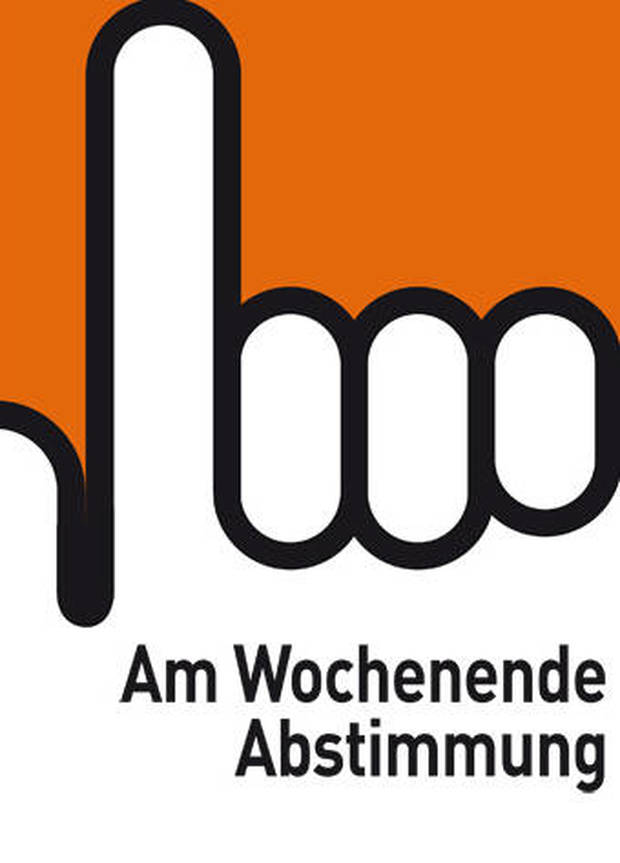back
akade

akade
Free
City of residence
Zürich
Follower
1

Passports and permanent vacation? Nationwide votes on 11 March
On 11 March, ballots are cast at a local, cantonal and national level. The Swiss may be wrongly associated with cuckoo clocks (which are, in fact, German) but theirs is a political system that is at least as intricate. A glimpse at how this clockwork ticks. The people and cantons will decide on five federal proposals concerning book prices, home ownership, landscape conservation, lotteries and more holidays. Many of these proposals come about by popular initiative. They are considered the movement driving the clockwork of direct democracy: they do not originate in Parliament or in the government but come directly from the citizens. Here’s how they work: By exercising their right to initiate legislation, the electorate can request a popular vote on an amendment to the Constitution. If a popular initiative committee manages to collect 100,000 signatures within an 18-month period, a popular vote will then be held. Popular initiatives are also possible at cantonal or communal level. As a political instrument, they have stood the test of time: There have been 403 popular initiatives since 1893. 18 of them led to a change in the constitution – among which, famously, the controversial minaret ban (which led to a debate about what to do if amendments to the constitution violate international laws.) Currently, there are some 27 proposals pending at signature collection stage. These regard anything from (the protection of) wolves to income transparency for politicians. So – who wants more holidays? It is hard to image anyone but the Swiss saying no to this. Ours is a Calvinist work ethic – or an almost supernatural dread of being considered lazy. Already in the late seventies, the left along with trade unions campaigned for a statutory five-week holiday entitlement. The people rejected the initiative in a nationwide vote in 1985. On 11 March, the population will once more be able to vote in favour of or against more (paid!) holidays: only this time it’s “Six weeks holiday for everyone.” The initiative was launched by the trade unions and calls for at least six weeks of paid holiday per year for all employees (the law currently provides for four weeks, and five weeks for the under-twenties). The committee campaigns for a better work-life balance and better health among the workforce, claiming that the increasing workloads have negative repercussions for the population. The Federal Council, conservative parties and - little surprising – the employers’ association maintain that current regulations are sufficient. But will the Swiss be swayed? Polls show suspicion, with a mere 39% in favour of more holidays and even younger voters arguing that ‘6 weeks would simply be too much.’ At a cantonal level, the hands of the political clock are poised to move a notch to the right in Zurich. Here, the electorate is asked to vote on a new cantonal Citizenship Act and its dramatically named counterproposal ‘No Right to Naturalisation for Criminals’. The latter was launched by the Zurich branch of the right-wing Swiss People’s Party (SVP) known for its sensitivity to foreign threats (as evidenced by the minaret ban, the deportation initiative, and, well, black sheep). Both proposals aim to standardise and tighten the conditions for becoming Swiss across the canton. So - what’s in a passport? Obtaining that red passport with the white cross (to many, so confusingly like a first aid kit – although, in this case they might be forgiven for a assuming a connection) has never been an easy matter. In order to apply for citizenship, applicants must be familiar with Swiss customs, speak German sufficiently well, earn enough money and obey Swiss laws. But things might well get more difficult for contenders in the canton of Zurich. The new Citizenship Act proposes to standardise the required level of German and how this should be assessed. The rules for applicants with a criminal record and the income necessary to apply are to be tightened and anyone with a history of receiving social benefits or a previous criminal conviction to be imposed a waiting period of up to several years before they can apply. Besides, applicants must have lived in the same commune for at least three years and be in possession of a C-permit, i.e. have been granted unlimited residency. Predictably, the SVP’s counterproposal ‘No Right to Naturalisation for Criminals’ goes that extra mile in the ‘right’ direction. Their version of the draft denies any entitlement to Swiss citizenship, in other words: even if someone fulfils all the required criteria, he or she can still be rejected. It also aims to ban any foreign national with a previous criminal conviction, including those born and raised in Switzerland, from ever obtaining Swiss citizenship. So far, the polls show a 44% majority against both proposals. For more information on the Citizenship Act:http://www.swissinfo.ch/eng/specials/march_11_vote/Naturalisation_vote_raises_emotions_.html?cid=32160934The campaign video for the 6-weeks holiday initiative:http://www.youtube.com/watch?v=f9MHuvZA-ZE&feature=player_embedded …And as for that mysterious connection between Swiss democracy and cuckoo clocks:http://www.youtube.com/watch?v=LDplfsZxrbg
-
 nigelpallis
nigelpallis



Passports and permanent vacation? Nationwide votes on 11 March
On 11 March, ballots are cast at a local, cantonal and national level. The Swiss may be wrongly associated with cuckoo clocks (which are, in fact, German) but theirs is a political system that is at least as intricate.
A glimpse at how this clockwork ticks.
The people and cantons will decide on five federal proposals concerning book prices, home ownership, landscape conservation, lotteries and more holidays. Many of these proposals come about by popular initiative . They are considered the movement driving the clockwork of direct democracy: they do not originate in Parliament or in the government but come directly from the citizens.
Here’s how they work: By exercising their right to initiate legislation, the electorate can request a popular vote on an amendment to the Constitution. If a popular initiative committee manages to collect 100,000 signatures within an 18-month period, a popular vote will then be held. Popular initiatives are also possible at cantonal or communal level.
As a political instrument, they have stood the test of time: There have been 403 popular initiatives since 1893. 18 of them led to a change in the constitution – among which, famously, the controversial minaret ban (which led to a debate about what to do if amendments to the constitution violate international laws.) Currently, there are some 27 proposals pending at signature collection stage. These regard anything from (the protection of) wolves to income transparency for politicians.
So – who wants more holidays? It is hard to image anyone but the Swiss saying no to this. Ours is a Calvinist work ethic – or an almost supernatural dread of being considered lazy. Already in the late seventies, the left along with trade unions campaigned for a statutory five-week holiday entitlement. The people rejected the initiative in a nationwide vote in 1985. On 11 March, the population will once more be able to vote in favour of or against more (paid!) holidays: only this time it’s “ Six weeks holiday for everyone. ”
The initiative was launched by the trade unions and calls for at least six weeks of paid holiday per year for all employees (the law currently provides for four weeks, and five weeks for the under-twenties). The committee campaigns for a better work-life balance and better health among the workforce, claiming that the increasing workloads have negative repercussions for the population. The Federal Council, conservative parties and - little surprising – the employers’ association maintain that current regulations are sufficient.
But will the Swiss be swayed? Polls show suspicion, with a mere 39% in favour of more holidays and even younger voters arguing that ‘6 weeks would simply be too much.’
At a cantonal level, the hands of the political clock are poised to move a notch to the right in Zurich. Here, the electorate is asked to vote on a new cantonal Citizenship Act and its dramatically named counterproposal ‘No Right to Naturalisation for Criminals’. The latter was launched by the Zurich branch of the right-wing Swiss People’s Party (SVP) known for its sensitivity to foreign threats (as evidenced by the minaret ban, the deportation initiative, and, well, black sheep). Both proposals aim to standardise and tighten the conditions for becoming Swiss across the canton.
So - what’s in a passport ? Obtaining that red passport with the white cross (to many, so confusingly like a first aid kit – although, in this case they might be forgiven for a assuming a connection) has never been an easy matter. In order to apply for citizenship, applicants must be familiar with Swiss customs, speak German sufficiently well, earn enough money and obey Swiss laws. But things might well get more difficult for contenders in the canton of Zurich.
The new Citizenship Act proposes to standardise the required level of German and how this should be assessed. The rules for applicants with a criminal record and the income necessary to apply are to be tightened and anyone with a history of receiving social benefits or a previous criminal conviction to be imposed a waiting period of up to several years before they can apply. Besides, applicants must have lived in the same commune for at least three years and be in possession of a C-permit, i.e. have been granted unlimited residency.
Predictably, the SVP’s counterproposal ‘No Right to Naturalisation for Criminals’ goes that extra mile in the ‘right’ direction. Their version of the draft denies any entitlement to Swiss citizenship, in other words: even if someone fulfils all the required criteria, he or she can still be rejected. It also aims to ban any foreign national with a previous criminal conviction, including those born and raised in Switzerland, from ever obtaining Swiss citizenship.
So far, the polls show a 44% majority against both proposals.
For more information on the Citizenship Act:
http://www.swissinfo.ch/eng/specials/march_11_vote/Naturalisation_vote_raises_emotions_.html?cid=32160934
The campaign video for the 6-weeks holiday initiative:
http://www.youtube.com/watch?v=f9MHuvZA-ZE&feature=player_embedded
…And as for that mysterious connection between Swiss democracy and cuckoo clocks:
http://www.youtube.com/watch?v=LDplfsZxrbg
read more
I am your mouthpiece for your city and am always independent. A small financial contribution would make my day and allow me to provide more independent content.